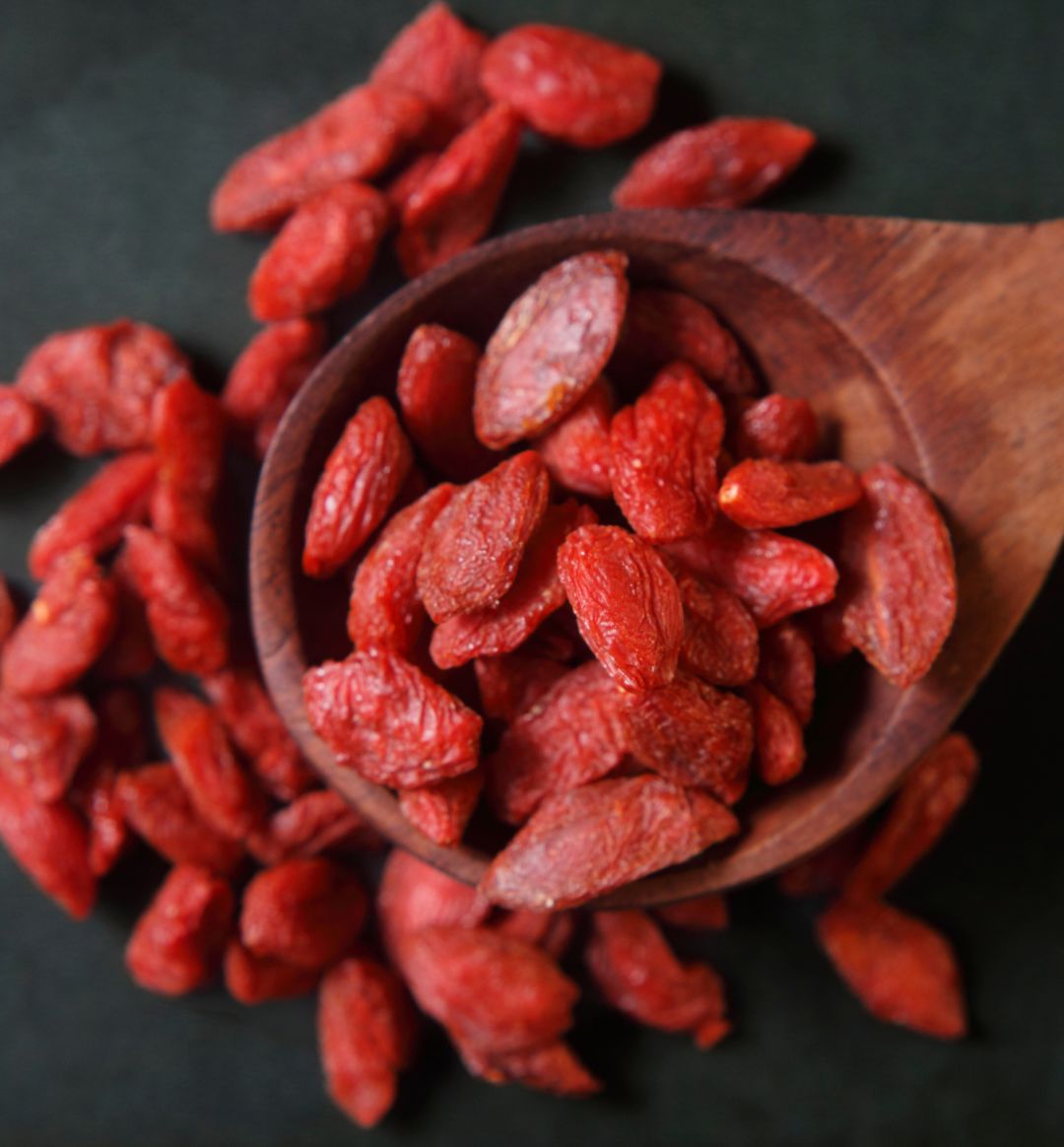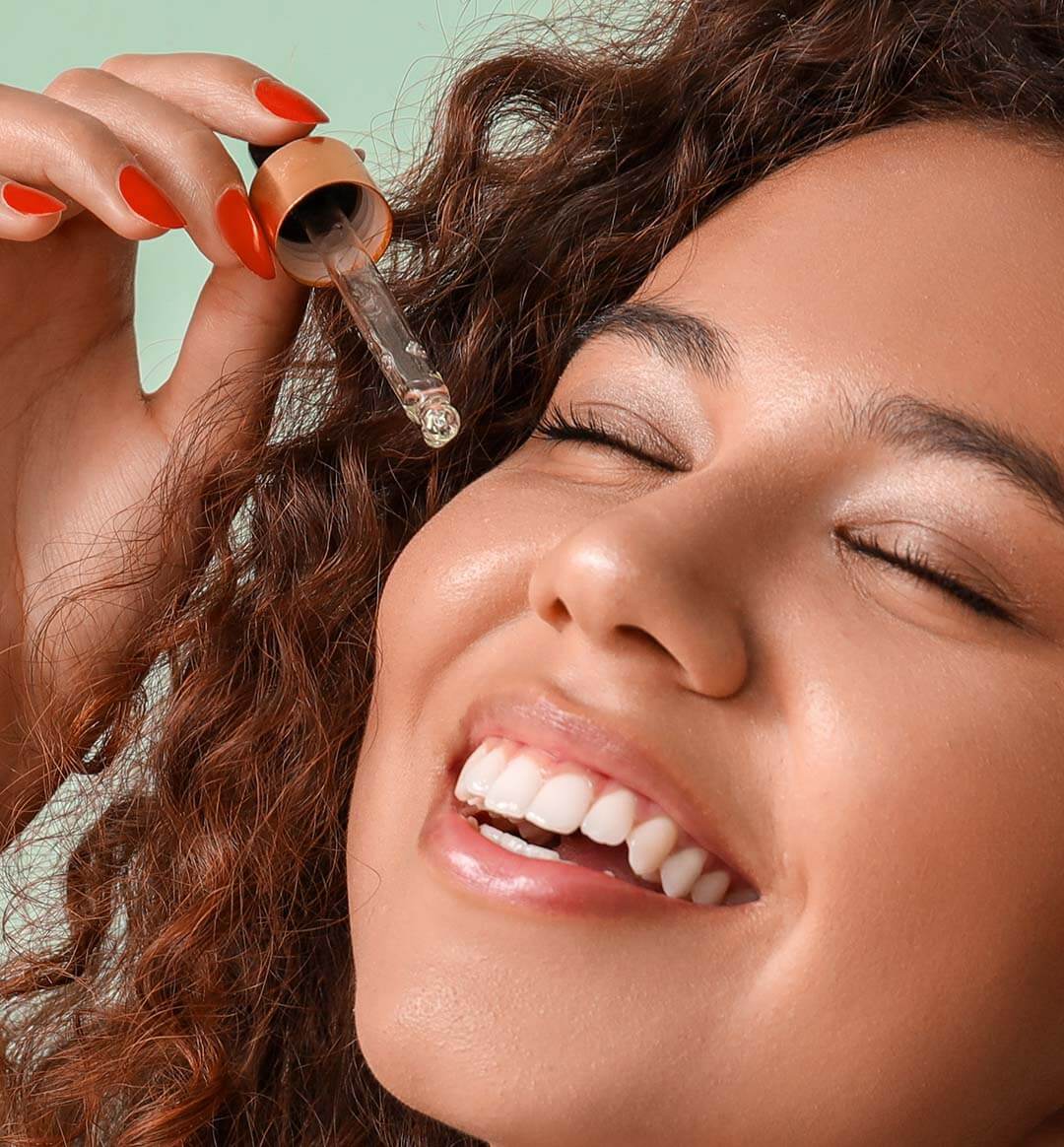
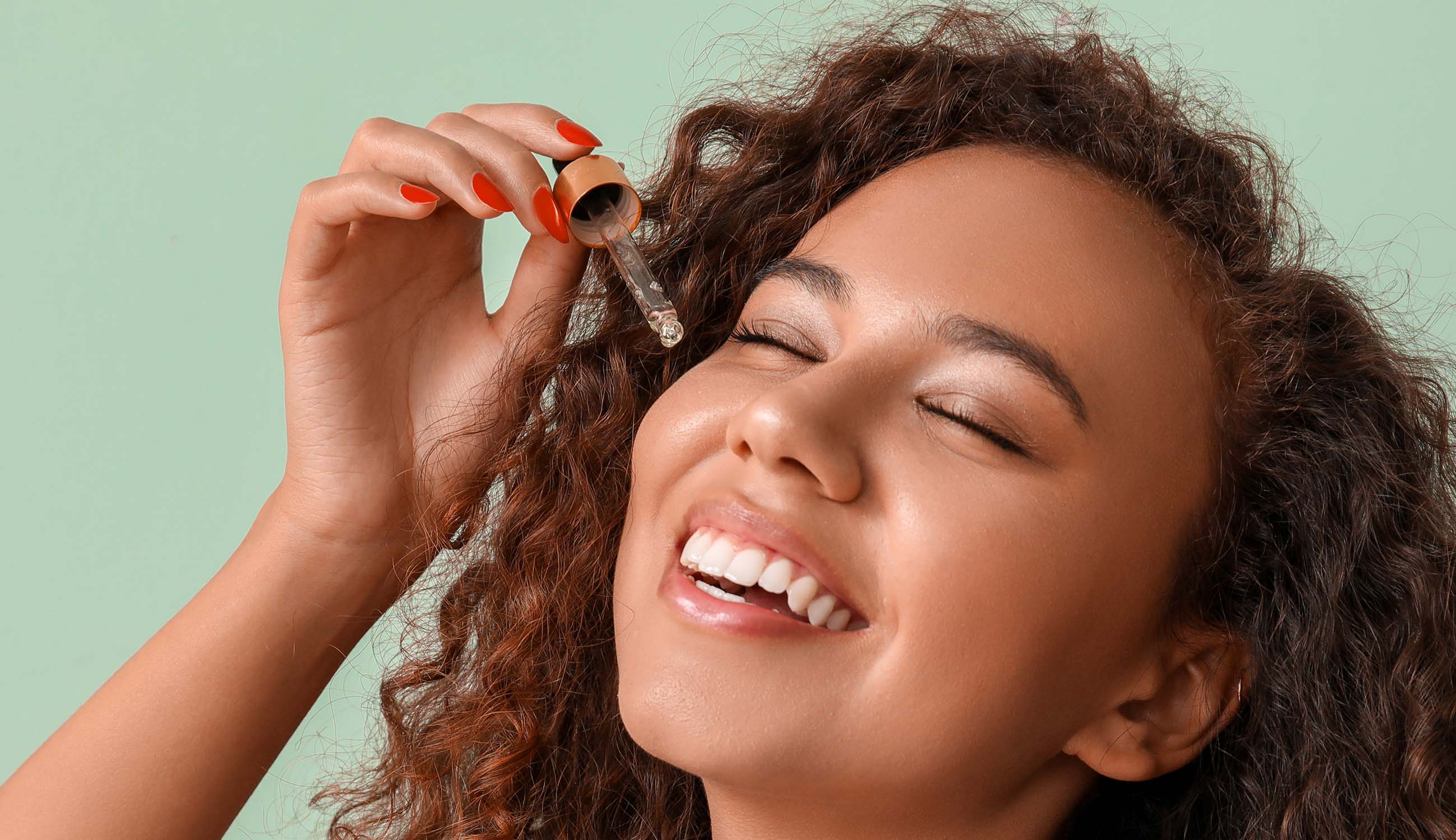
As our understanding of skincare has advanced over the past few years, we’ve become especially invested in ‘actives’ in products. Actives are clinically proven ingredients that can treat a specific skincare issue, like retinol for anti-aging concerns and vitamin C to lighten dark spots. And, while actives are great, they make it easy to overlook some ingredients that are just as valuable. Enter squalane!
As the active and more stable form of squalene (found in human sebum), squalane is an ingredient that’s been around for a while, especially in the medical field to treat wounds. But we often don’t hear what squalane can do for your skin, especially when it comes to its exceptional barrier support and anti-aging benefits.
Let’s delve into the BIG benefits of squalane and break down the key differences between squalane and squalene because, yes, they are two different things. We’ll even provide some of our favorites in squalane skincare – plus we’ll ‘dive’ into where squalane comes from – it may shock you – and why we tend to choose certain sources over others!
Understanding Squalane vs. Squalene
Before we get into the details of squalane, it’s helpful to first talk about ‘squal(e)ne’, which has a spelling difference of one single vowel. Squalene is a compound naturally produced by our bodies and helps the skin stay healthy. It’s fatty, rich, and helpful for keeping skin supple and moisturized.
But our own natural squalene supply starts to rapidly decline in our early 20’s – by middle age, it’s virtually non-existent. Why is this a big deal? Squalene is instrumental in securing the skin’s moisture barrier, while supporting healthy skin aging. So, it sounds like something we should slather all over – or is it?
When it comes to how squalene is sourced, you may not be ready for the truth: this ingredient is actually sourced from shark livers – which is something we’d never condone for any reason! Aside from the cruelty that goes into its sourcing as a skincare ingredient, squalene is also prone to oxidation. It can rapidly spoil when exposed to oxygen. Consequently, squalene must be hydrogenated, which effectively creates the ingredient known as squalane.
Squalane is a stable, non-comedogenic oil that’s incredibly lightweight and easy to absorb. That makes it a stellar skincare ingredient. Luckily, we don’t need to hunt sharks to source it. With the technology we have these days, we can actually source squalane from plants instead – mainly from olives and sugar cane. That makes it a great vegan ingredient choice for our products.
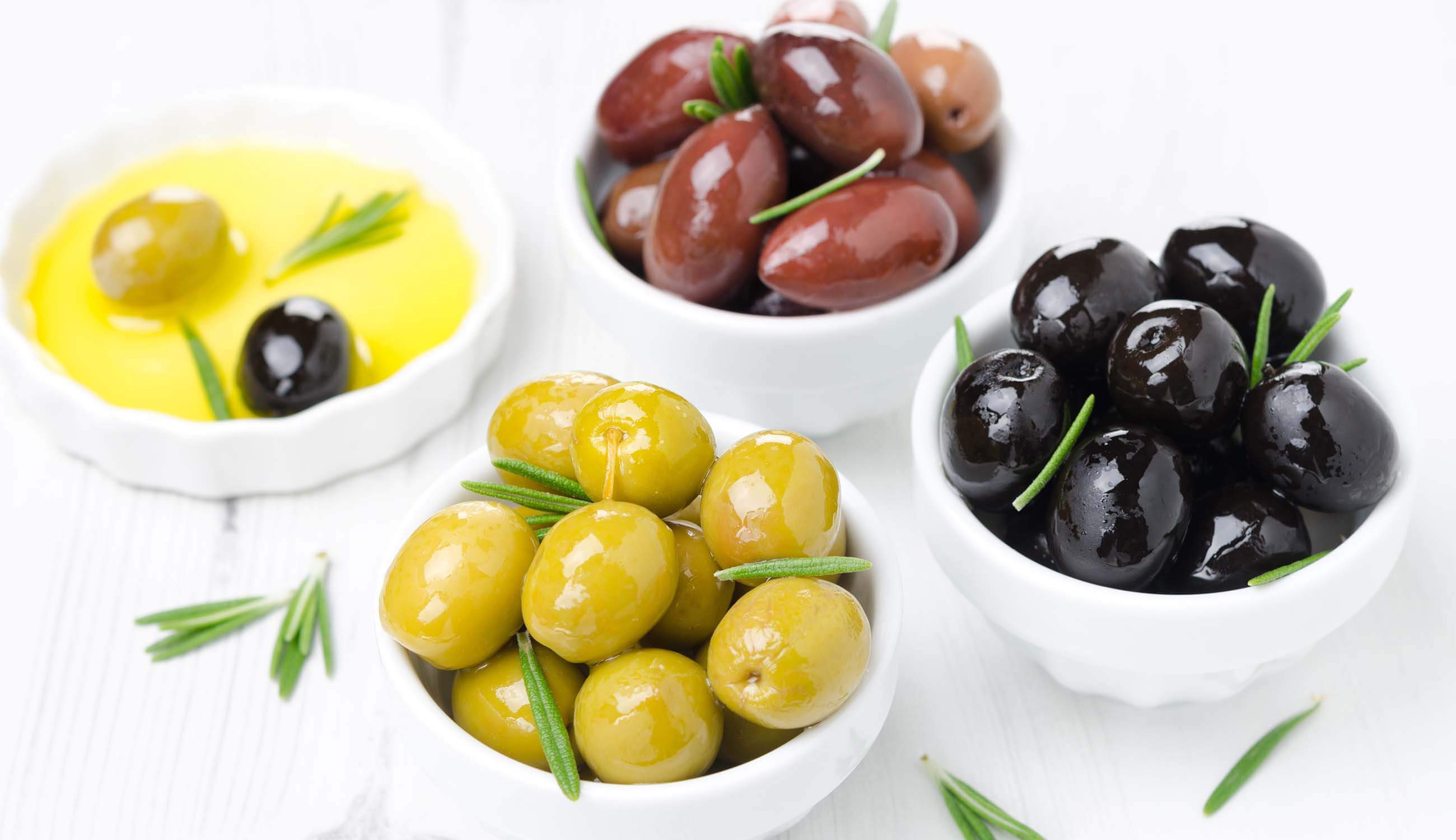
What are the Benefits of Squalane for Skin?
While squalane may not be the first active we think about when it comes to skin care, its beauty benefits alone help it stick out. It’s celebrated for its exceptional moisturizing properties and ability to mimic the skin’s natural oils. Because it’s similar to the skin’s natural oils, squalane helps to restore the lipid barrier, aiding in moisture retention and protection against environmental stressors.
In addition to its anti-inflammatory properties, squalane’s excellent absorption qualities means no greasy residue. Once absorbed, it helps to replenish the lipid layer, fighting off dryness and promoting a healthy, hydrated, and radiant complexion. And, there’s more BIG skin-efits of squalane!
#1: Barrier Support
As we touched on above, squalene is naturally produced by our skin to help keep it healthy, and one of its main functions is to moisturize. But as we’ve noticed to be the case for most helpful substances in our skin, squalene’s production diminishes with age. That makes products with squalane especially beneficial.
But squalane does far more than moisturize – it also helps support the skin barrier. And this is important because the barrier plays a crucial role in protecting the skin from UV damage, pollution, and contagions. But that’s one aspect of maintaining a healthy and hydrated complexion.
The journey towards optimal skin health also starts with healthy coverage against UV rays and environmental aggressors. Enter our Fruit Pigmented 2nd Skin Foundation! This antioxidant-rich serum foundation is designed to look and feel like a second skin, with ultralight olive squalane and pure fruit pigments. It provides the perfect amount of moisture while absorbing into the skin for a lightweight finish.
#2: Antioxidant Properties
The squalene produced by our bodies also plays another role in supporting skin health. Both squalane and squalene possess antioxidant properties. As a result, they help defend the skin from environmental pollutants and oxidative stress. However, since squalane is more stable, it won’t oxidize like squalene making it an ideal beauty choice.
And, when added to skincare products, stable squalane can help neutralize free radicals in the skin. That potentially helps to keep skin stronger and healthier-looking in the long run, as well as help ward off premature aging. But squalane or not, your true free-radical fighter is going to be using sun protection!
If you’re looking for more protection from both free radicals and UV damage, our vegan Green Tea SPF 30 is a natural sunblock that pulls double duty, with its protective and anti-aging properties of green tea, plus powerful antioxidant benefits from vitamin E to neutralize free radicals and environmental damage.
#3: May Diminish Signs of Aging
With all of squalane’s potential protective and restorative effects, it’s really no surprise that squalane may help diminish signs of aging altogether. It’s an excellent emollient, meaning it softens and smooths the skin, making it feel plumper and suppler. As we know, collagen and elastin start to diminish with age.
And since the neck is one of the first areas of the skin to show signs of aging, we recommend adding a neck cream into your skincare routine. It’s preferable to choose one with the emollient, repairing properties of squalane, along with retinol’s clinically proven anti-aging benefits.
With that being said, our Retinol Restorative Neck Cream is a great place to start. This youth-revitalizing neck cream promotes elasticity for a firmer, more lifted neck. Retinol reduces appearance of lines and wrinkles, while olive squalane and hyaluronic acid enhance plumpness and suppleness for as smoother and more toned neck.
Newsletter Subscribe
for more blog updates and exclusive discounts
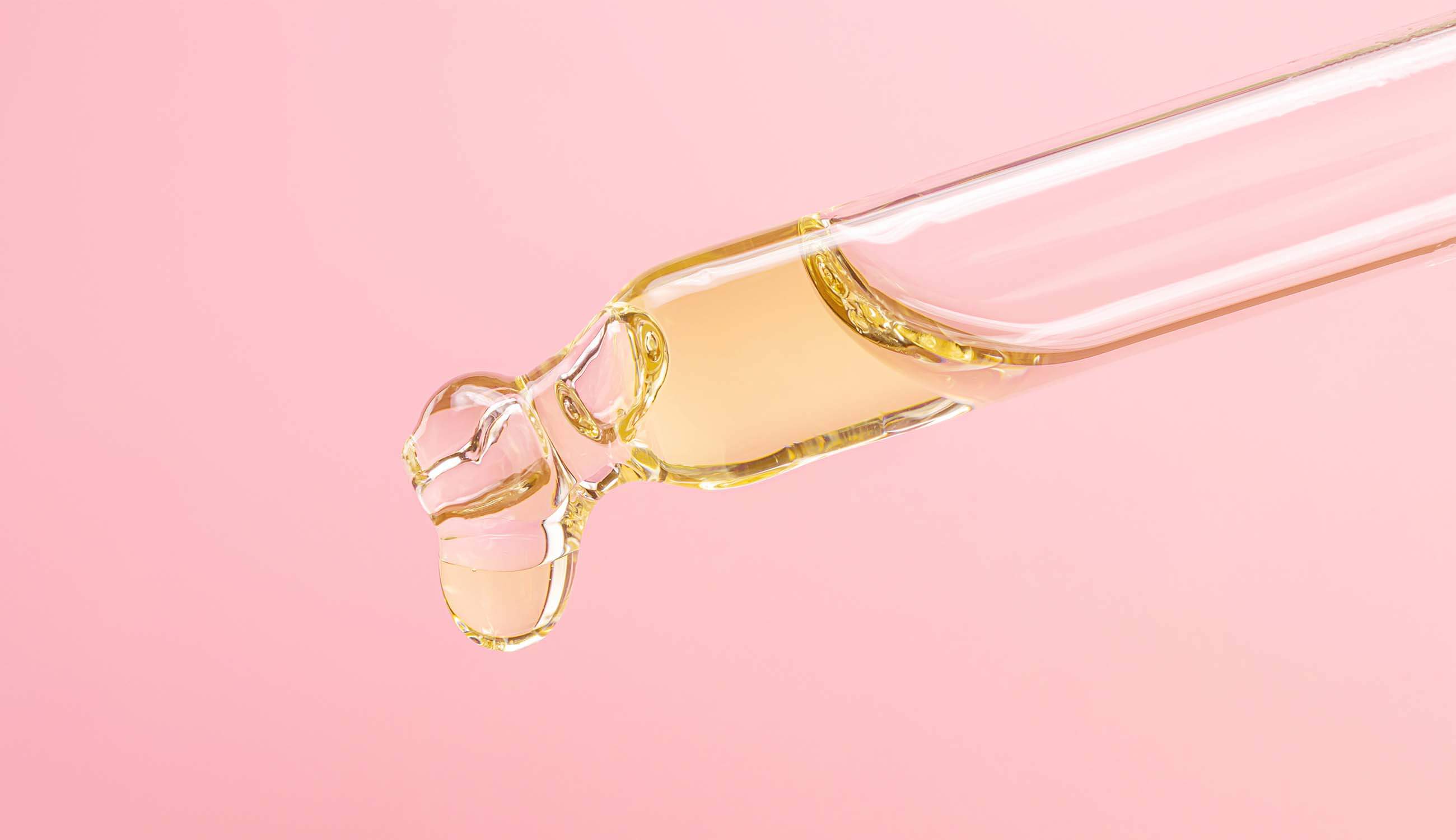
Why Do We Make Products with Squalane?
As we explained above, the body naturally produces squalene – specifically in the sebaceous glands. It acts as a lipid to hydrate the skin’s barrier to keep it healthy and hydrated.
But unfortunately, our bodies’ natural squalene production levels tend to drastically lower after the age of 30. This means skin may become dryer, which can exasperate the signs of aging and, also, increase the likelihood of premature aging. Because of this, squalene derived from other sources becomes an attractive solution.
However, squalene is unstable in its natural state. So, we must hydrogenate it to stabilize it. That basically entails adding a hydrogen molecule to the structure. Once squalene has been properly hydrogenated, it becomes squalane, which offers all of squalene’s benefits in a safe, stable form.
For decades, shark liver was the most common source of squalene in the world, and it has significantly contributed to their exploitation in the wild. But as more awareness is raised about this ethical issue, more brands have turned away from shark liver. These days, more brands derive their squalane from plants, like rice bran, sugar cane, wheat germ, and olives.
When it comes to beauty, there’s no shortage of squalane being used in makeup and skincare products! Many of us choose to benefit from it in a concealer for any imperfections to pair with their natural foundation. Our Fruit Pigmented 2nd Skin Concealer is a vegan and cruelty-free concealer that features olive squalane and gives you effortlessly blendable and buildable coverage with a soft, satin finish that looks and feels like a second skin.
To help banish redness or color-correct dark areas, our 2nd Skin Corrector is an ultra-blendable color corrector that’s made with hydrating olive squalane and natural pigments to banish redness, brighten your complexion, and correct dark circles.
Because of squalane’s recorded emollient properties, individuals with dry, sensitive, and mature skin types may find that they especially benefit from squalane in their beauty routine. Check out below for our favorite skincare products featuring olive squalane!
The Best Skincare Products with Olive Squalane
We source wholesome ingredients that utilize the power of either plants or clean, synthetic alternatives to conventional ingredients. We’re doing our part to better the beauty community by including olive-derived squalane in our formulas. This olive substitute is better for the ecosystem and for your skin!
Olive squalane is created as a natural byproduct during the refining process of olive oil. During the process of hydrogenation, squalane becomes a lighter form of olive oil squalene that is much more stable. It helps to boost cell regeneration, which aids in eliminating age spots and scars, tightening the skin, and maintaining a youthful appearance. It also helps to soften rough skin, repair sun damage, and heal skin conditions such as psoriasis and eczema.
In addition to the same benefits popularized by shark squalene, olive squalane is completely shelf stable in comparison to its alternative.
Here are a few 100% PURE™ products that feature olive squalane:
Watermelon Cucumber Water Locking Mist
This ultra-hydrating water mist naturally reinvigorates dehydrated skin cells and reduces signs of aging by locking in cactus juice, watermelon hydrosol, and moisture-locking hyaluronic acid. It includes moisturizing Irish Moss Extract and antioxidant olive squalane to provide long-lasting hydration without a greasy feel.
Watermelon Cucumber Water Locking Serum
Our intensely hydrating hydrogel serum locks in watermelon hydrosol to revitalize dehydrated skin cells with skin-plumping polyglutamic acid from fermented natto beans and moisture-retaining hyaluronic acid – plus antioxidant olive squalane to provide long-lasting hydration without a greasy feel.
Watermelon Cucumber Water Locking Moisturizer
Our hydrating moisturizer locks in watermelon hydrosol and polyglutamic acid to naturally restore skin elasticity, promote cell regeneration, and reduce signs of aging – plus antioxidant olive squalane to provide all-day hydration with a non-greasy feel.
This lightweight, hydrating serum is concentrated with EGCG, the key antioxidant in green tea that can delay signs of aging, and caffeine to tone, brighten, and depuff – plus antioxidant olive squalane to provide all-day hydration with a non-greasy feel.
Puristry Nopal Cactus Cleanser
This replenishing cleanser is made with a concentrated blend of desert botanicals like nopal cactus, prickly pear, and aloe vera to deeply cleanse and balance the skin. Organic aloe deeply hydrates, while nopal cactus infuses skin with nutrients that help it retain moisture – plus olive squalane for locking in essential hydration all day.
This superstar face cream was formulated to reverse sun damage, and brighten and tighten your skin for an immediate healthy glow. Powered with a trifecta of skin-caffeinated goodness with green coffee extract, caffeine, and green tea EGCG, this serum boosts circulation for the skin and transforms the complexion for a healthy, vibrant glow. The addition of olive squalane delivers and locks in all-day hydration for supple skin!
How Squalane Behaves on the Skin
Now, we’ve gone over the practical benefits of squalane for the skin, and we’ve discussed why we opt for plant-derived squalane instead of sourcing from sharks. But there’s still one major question we haven’t answered: how does squalane behave on the skin?
One of our favorite things about squalane is the way it feels on the skin. Even if you have an oily or combination skin type, don’t let this product’s classification of “oil” scare you. Just like the squalene your body produces, squalane is known to blend effortlessly into the skin without a greasy finish later in the day.
Because of its lightweight feel, squalane is perfect for moisturizing the skin for a luminous glow. And because it’s such a lightweight emollient, this means that it can actually squeeze in between the spaces between your skin cells, penetrating for even deeper hydration.
Frequently Asked Questions About Squalane For Skin
How Does Vegan Squalane Differ from Traditional Squalane?
Squalene has been harvested from shark liver oil for skincare purposes. Aside from the cruelty that goes into its sourcing as a skincare ingredient, squalene is also prone to oxidation. However, squalene is also naturally occurring in vegan alternatives such as olives and sugarcane. Once modified into the hydrogenated form, squalane acts as an emollient in skin care.
How Does Squalane Improve Skin Hydration?
Squalane oil is an emollient, a type of ingredient that works very much like skin’s own oil (sebum) to prevent moisture loss. It helps lubricate your skin, allowing it to retain much-needed moisture. This will improve skin hydration and help your complexion look more vibrant and youthful.
What Role Does Squalane Play in Anti-Aging Skincare?
Squalane helps to reinforce the skin barrier’s function by mimicking the skin’s natural oils, preventing moisture loss and keeping harmful external irritants at bay. Daily application of squalane offers all kinds of benefits ranging from anti-aging to moisturization. With an increased protective skin barrier, moisture stays locked in and can help prevent dryness, which can exasperate fine lines and wrinkles.
How Can Incorporating Squalane Benefit Acne-Prone Skin?
Squalane is an excellent alternative if other oils are too heavy or greasy for your skin. Despite being an oil, it’s lightweight and non-comedogenic, meaning it won’t clog your pores. It does penetrate pores and improve skin at the cellular level, but it doesn’t feel heavy on the skin. Plus, squalane has anti-inflammatory properties that make it excellent for treating acne-prone skin.
What Are the Environmental Impacts of Using Vegan Squalane?
Since we don’t source anything from sharks, going with a vegan squalane from olives for instance is better on the planet, ocean life, and you. With the technology we have these days, we can actually source squalane from plants instead – mainly from olives and sugar cane. That makes it a great vegan ingredient choice for our products.




